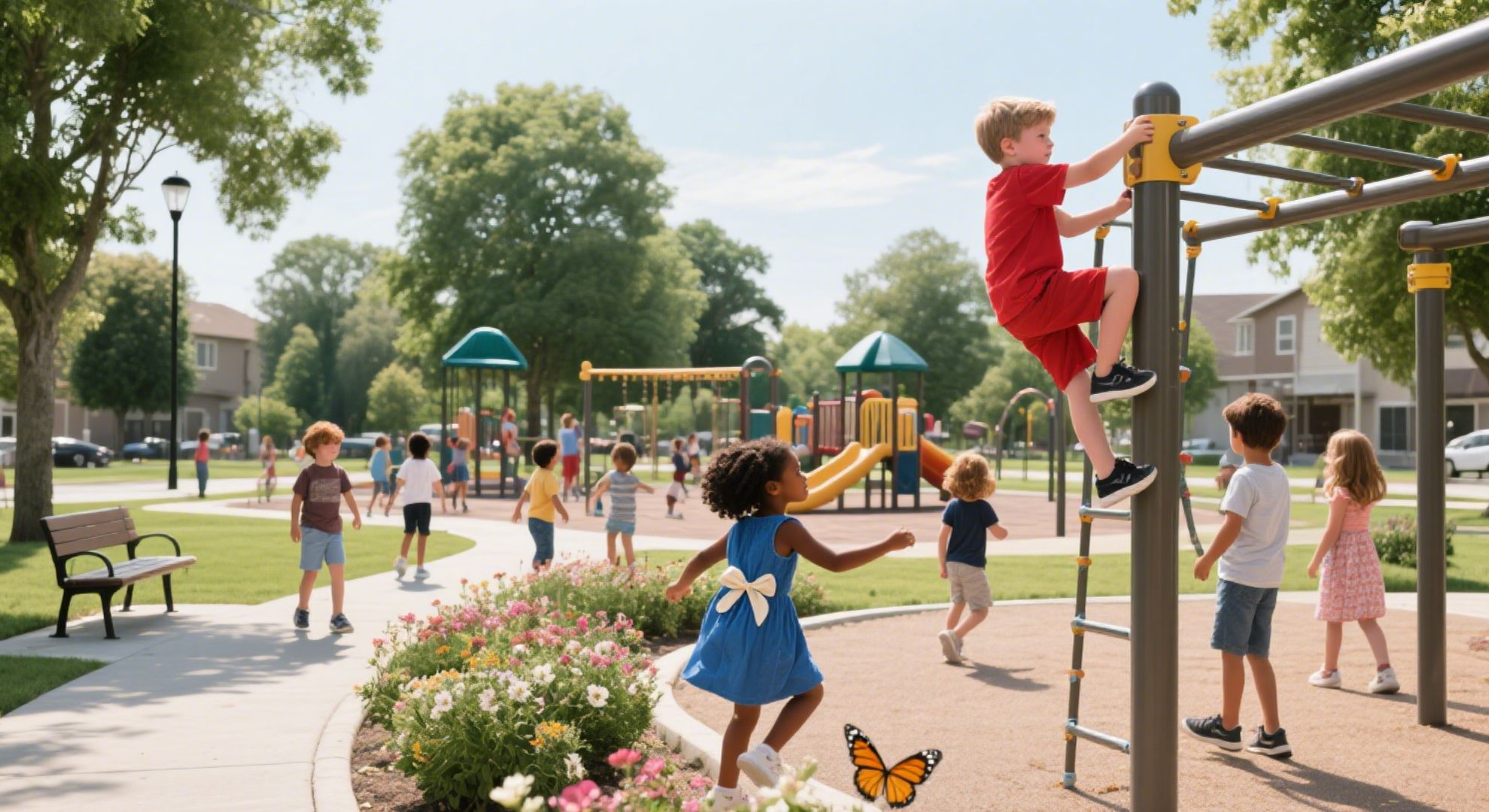How Deep Should Playground Mulch Be?
2025年6月27日 / By SafeKidsPlay
As a playground equipment manufacturer, we know that fun starts with safety. One of the most overlooked—but crucial—aspects of any play area is the mulch depth. Playground mulch isn’t just for aesthetics or weed control; it’s a vital shock-absorbing surface that protects children from injuries during falls. In this guide, we’ll walk you through the importance of mulch depth, safety standards, material options, and how to make the right choice for your playground project.
Why Mulch Depth Matters
The depth of playground mulch directly affects its ability to cushion falls and minimize injuries. According to the U.S. Consumer Product Safety Commission (CPSC), falls are the leading cause of playground-related injuries, and proper surfacing is the first line of defense. A mulch surface that’s too shallow may not provide adequate impact absorption, putting children at serious risk.
Recommended Playground Mulch Depth
Here’s what safety experts recommend for different types of mulch materials:
| Mulch Type | Minimum Depth for 6 ft Fall Height | Minimum Depth for 12 ft Fall Height |
|---|---|---|
| Engineered Wood Fiber | 9 inches | 12 inches |
| Rubber Mulch | 6 inches | 9–10 inches |
| Wood Chips | 9–12 inches | 12+ inches |
| Shredded Bark | 9 inches | 12 inches |
Keep in mind: These depths are based on uncompacted mulch. Over time, mulch compacts and loses some shock-absorbing ability, so regular maintenance is essential.
Compliance and Safety Standards
To ensure your playground meets national safety guidelines, follow these standards:
-
ASTM F1292: Specifies impact attenuation performance requirements.
-
ASTM F1951: Ensures wheelchair accessibility for loose-fill surfacing.
-
CPSC Guidelines: Recommends surfacing depth and material types.
If you’re selling or installing commercial-grade playgrounds, compliance with these standards isn’t optional—it’s critical.
How to Maintain Proper Mulch Depth
Mulch can compact, blow away, or decompose over time. To ensure your playground surface remains safe:
-
Inspect monthly for low spots, especially under swings and slides.
-
Rake and loosen mulch regularly to maintain resilience.
-
Top off mulch annually to maintain the recommended depth.
-
Install borders to help contain mulch and prevent erosion.
Choosing the Right Mulch for Your Playground
As a manufacturer, we recommend choosing a mulch type based on budget, accessibility, and maintenance needs:
| Material | Pros | Cons |
|---|---|---|
| Engineered Wood Fiber | Economical, natural look, good fall protection | Requires more frequent replenishment |
| Rubber Mulch | Long-lasting, excellent shock absorption | Higher upfront cost, less natural look |
| Wood Chips | Affordable, easy to install | May splinter, requires frequent topping up |
| Shredded Bark | Natural appearance | Decomposes faster than engineered options |
If you’re sourcing equipment and surfacing from the same supplier, you’ll get better alignment in safety design and warranty coverage.
Final Thoughts
Playground mulch depth isn’t just a technical detail—it’s a critical safety feature that protects children and meets legal standards. As a trusted playground equipment manufacturer, we provide not only play structures but also professional advice on creating safe, compliant environments from the ground up.
Looking for a turnkey playground solution? Contact us today for customized designs, installation services, and safety-compliant surfacing options.

